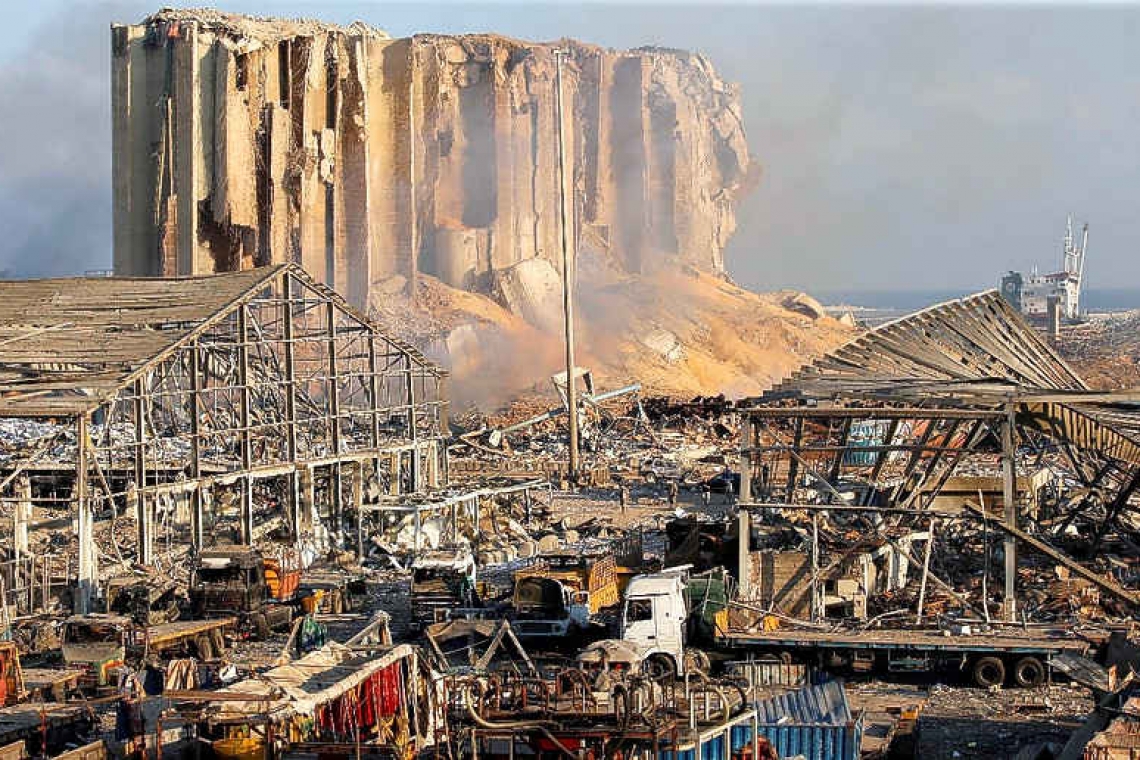BEIRUT--Lebanese rescue teams pulled out bodies and hunted for missing people on Wednesday from the wreckage caused by a massive warehouse explosion that sent a devastating blast wave across Beirut, killing at least 135.
Prime Minister Hassan Diab declared three days of mourning from Thursday as early investigations blamed negligence for the explosion at Beirut port, which has left tens of people missing and injured more than 5,000 others.
Up to a quarter of a million people were left without homes fit to live in, officials said, after shockwaves smashed building facades, sucked furniture out into streets and shattered windows miles inland. The death toll was expected to rise from the blast, which officials blamed on a huge stockpile of highly explosive material stored for years in unsafe conditions at the port.
The explosion was the most powerful ever in Beirut, a city still scarred by civil war that ended three decades ago and reeling from an economic meltdown and a surge in coronavirus infections. The blast rattled buildings on the Mediterranean island of Cyprus, about 100 miles (160 km) away.
"No words can describe the horror that has hit Beirut last night, turning it into a disaster-stricken city," President Michel Aoun said in an address to the nation during an emergency cabinet session.
Aoun said 2,750 tonnes of ammonium nitrate, used in fertilisers and bombs, was stored for six years at the port after it was seized. The government was "determined to investigate and expose what happened as soon as possible, to hold the responsible and the negligent accountable," he said.
An official source familiar with preliminary investigations blamed the incident on "inaction and negligence", saying "nothing was done" by committees and judges involved in the matter to order the removal of hazardous material. The cabinet ordered port officials involved in storing or guarding the material to be put under house arrest, ministerial sources told Reuters.
Officials have not confirmed the origin of an initial blaze that sparked the explosion, although a security source and local media said it was started by welding work. For many, the blast was a dreadful reminder of the 1975-1990 civil war that tore the nation apart and destroyed swathes of Beirut, much of which had since been rebuilt.
Ordinary Lebanese, who have lost jobs and watched savings evaporate in the country's financial crisis, blamed politicians who have overseen decades of state corruption and bad governance. "This explosion seals the collapse of Lebanon. I really blame the ruling class," said Hassan Zaiter, 32, a manager at the heavily damaged Le Gray Hotel in downtown Beirut.
Relatives gathered at a cordon to Beirut port seeking information on those still missing as the search continued. Many of those killed were port and custom employees, people working in the area or those driving nearby during the Tuesday evening rush hour. Some victims were hurled out to sea by the powerful blast.
The Red Cross was coordinating with the Health Ministry to set up morgues as hospitals were overwhelmed. Health officials reported that hospitals were running out of beds and equipment to attend to the injured.
Beirut's Clemenceau Medical Center was "like a slaughterhouse, blood covering the corridors and the lifts," said Sara, one of its nurses.







